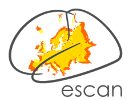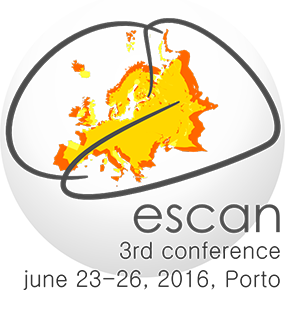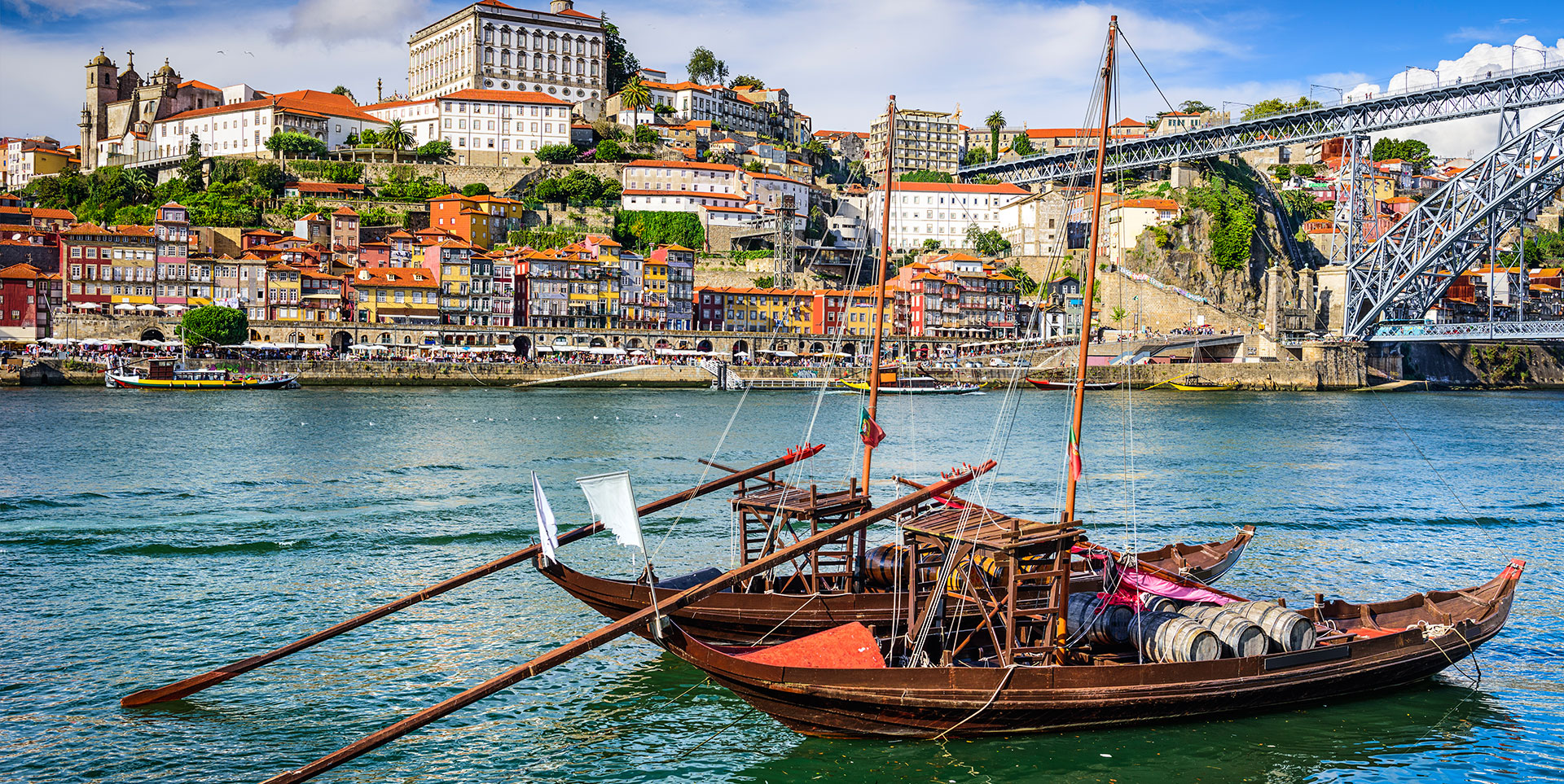
for Cognitive and
Affective Neuroscience
 We are pleased to announce the 3rd international conference of the European Society for Cognitive and Affective Neuroscience (ESCAN), that will take place in Porto, Portugal, between 23-26 of June, 2016, at the Porto Palácio Congress Hotel & Spa.
We are pleased to announce the 3rd international conference of the European Society for Cognitive and Affective Neuroscience (ESCAN), that will take place in Porto, Portugal, between 23-26 of June, 2016, at the Porto Palácio Congress Hotel & Spa.
ESCAN Porto 2016 will offer a unique opportunity to present theoretical and empirical research findings from different scientific areas in the field of Cognitive and Affective Neuroscience. ESCAN 2016 will include a broad scientific program:
- plenary sessions with leading scientists
- parallel symposia sessions
- poster sessions
- information about funding opportunities in Europe
- research networking and research collaboration sessions
Keynote lectures will be delivered by
- Professor Ray J. Dolan (University College London, UK) – The Neuroscience Perspective on Interpersonal Interactions
- Professor Robert Zatorre (Montreal Neurological Institute of McGill University, Canada) – From Perception to Pleasure: Music and its Neural Substrates
- Professor José Morais (Université Libre de Bruxelles, Belgium) – Literacy in context
Twenty four symposia will be held during eight sessions:
- Movement Preparation, Timing, Spontaneous Fluctuations, Free Will: What is the Bereitschaftspotential?
- Attentional Bias, Attentional Control and Emotional Vulnerability: Understanding Causal Mechanisms in Health and Mental Well-Being
- Detection of Social Signals and its Immediate Impact on Social Cognition
- Using ERPs: From Research on Healthy Populations to Clinical Applications
- How Emotions Drive Attention and Decision Making
- Close Human Relationships: From Infancy to Adulthood
- Electroencephalographic Advancements in the Study of Pain and of its Cognitive and Affective Modulations
- Affective Modulation of Perception and Attention, and the Potential Embedded Contribution of Action Processes
- Eye-to-Eye Social Cognition: A Theme and Variations
- Non Invasive Brain Stimulation Induces Transient Changes in Neural Activity and Behaviour: Evidence Across Three Stimulation Methods
- How are Emotions and the Self Related? Evidence from Affective, Cognitive, Behavioral and Clinical Neuroscience
- Brain and Heart Responses to Cognitive and Social Feedback Processing
- Interoceptive Mechanisms in Cognitive Neuroscience: Embodied Emotion and Social Cognition
- How Expectations and Learning Shape the Experience of Aversive Stimuli: From Behavior to Brain Mechanisms
- Social Cognition and Affective Neuroscience from a Female Perspective: the Impact of Sex Hormones
- Bad Brains: Prejudice, Immorality, and Other Nefarious Behaviours
- Avoidance and Reversal of Conditioned Fear: Processes and Paradoxes
- New Evidence on the Role of the Cerebellum in Social Cognition
- The Neuroaesthetics of People
- Neurobiological Underpinings of Freeze-Fight-Flight Behaviour in Humans
- Novel Perspectives in Social Cognitive Neuroscience
- Response Inhibition: Neural Mechanisms of Motor Suppression and Adjustment
- On the Emotional Melody of the Voice: A Multi-Method Approach
- Neural and Cognitive Mechanisms of Human Social Interactions
During two poster sessions, 274 posters will be presented. ESCAN 2016 will support young researchers by granting Best Student Abstract and Posters Awards.
Two pre-conference workshops will be offered:
- Functional Magnetic Resonance Imaging – from idea to the final results
- Building Experimental Paradigms in E-Prime
The ESCAN Board has attributed the ESCAN Young Scientist Award 2016 to Dr. Matthew Apps (University of Oxford, UK). He will present his research in Porto.
The city of Porto

Overlooking the Douro River, Porto is one of the most ancient European cities. It was born and developed from the northern bank of this river during the Middle Ages. One of the most significant aspects of Porto and its historical centre is its landscape, combining harmony with the urban structure and presenting a frame of rare beauty. The city was classified as World Heritage by UNESCO in 1996.
Detailed information is available at the conference website.